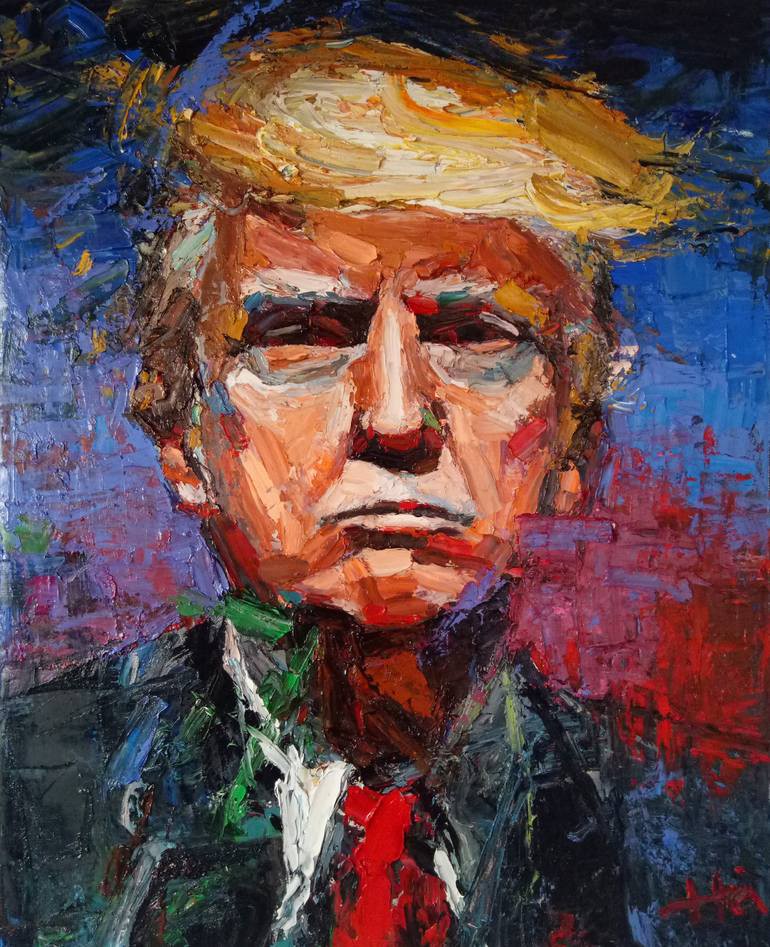While Donald Trump?s alleged wrongdoing in the Ukraine Affair has been the focus of impeachment proceedings, there are bigger problems afflicting the president hiding in plain sight that he may be more concerned over. Trump is widely known to hold that the president can?t be prosecuted while in office and that the Constitution places him above the law, something that Congress and most constitutional scholars scoff at. To hold a president above the law makes a hash of the Constitution and rule of law and small ?d? democrats find this objectionable. But Trump doesn?t really have an alternative to his position because he knows that the house of cards that has been his life could come crashing down around him after he inevitably leaves office.

That?s because the information Congress has been trying to gather from Trump Organization records, tax filings, and bank loan applications to name a few, may harbor evidence that he?s been running an organized crime racket for years. His behavior towards friends, enemies, and allies has aspects of vintage Mafioso dealings and for that type of criminal enterprise US federal law has, since the 1970s, provided a powerful law for prosecution, the RICO statute.
RICO or the Racketeer Influenced Corrupt Organizations Act defines a number of illegal activities that Trump could have participated in over the years. First, the law defines a racketeer as,
?A person who has committed ?at least two acts of racketeering activity? drawn from a list of 35 crimes ? 27 federal crimes and 8 state crimes ? within a 10-year period.?
Fines of up to $25,000 and 20 years in prison, per racketeering count, await convicted racketeers. Also, a convicted racketeer must forfeit all ill-gotten gains and interest in any business built on racketeering. RICO is important because it provides a way for bosses, who may only direct crimes rather than actively committing them, to be charged and prosecuted.
Finally, after charging and throughout trial the alleged racketeer must post a performance bond and the government can seize the alleged racketeer?s property making it impossible for the person to divest him or herself prior to conviction. This provision was put into the law to prevent Mafiosos from running off with their property held in webs of shell corporations. Trump has been reported to have hundreds of corporations.
So, how do we define a racket?
The Wikipedia entry appears to have been written by some sharp legal minds and says this:
?A racket, according to the current common and most general definition, is an organized criminal act in which the criminal act is some form of substantial business, or a way to earn illegal money either regularly, or briefly but repeatedly. A racket is therefore generally a repeated or continuous organized criminal operation. However, according to the more specific definition, racketeering constitutes extortion or criminal coercion. Originally and often still specifically, a ?racket? referred to a criminal act in which the perpetrator or perpetrators fraudulently offer a service to solve a nonexistent problem, a service that will not be put into effect, or a service that would not exist without the racket. Conducting a racket is racketeering.[1] Particularly, the potential problem may be caused by the same party that offers to solve it, but that fact may be concealed, with the specific intent to engender continual patronage for this party.
A protection racket is a form of extortion whereby racketeers offer to ?protect? property from damage in exchange for a fee, while also being responsible, in part or in whole, for the property damage.
So, how does Trump and the Trump Organization?s activities measure up? Keeping mind that I am not a lawyer and am simply reporting what I found online, it would appear that the Ukraine affair beginning with removing the ambassador to Ukraine through the July 25, 2019 phone call with Ukraine?s president, represents a continuous activity to get something of value from Ukraine, as many people have reported.
But there?s more. Here are some of the federal crimes covered by the RICO statute again according to the entry in Wikipedia, some RICO violations that Trump might be involved in include:
1. Money laundering and other creative accounting practices that are misused in ways to disguise sources of illegal funds.
2. Fraud and embezzlement operations, including: credit card fraud, check fraud, health care fraud, insurance fraud, mail and wire fraud, securities fraud, bank fraud, mortgage fraud, skimming (fraud), electoral fraud, confidence tricks, and bid rigging
3. Tax evasion and cigarette smuggling
4. Witness tampering and intimidation
The feds want to see Trump?s tax returns to understand the sources of his income for several reasons. First, he went bankrupt multiple times over his handling of his Atlantic City casinos. Where did he get the money to live? How can he still claim to be a billionaire? Second, insiders including Michael Cohen, now in federal prison, have alleged that Trump inflated the value of his assets when applying for real estate loans, and decreased his earnings on tax return forms to lower his tax indebtedness. Third, Trump has boasted about selling properties to foreign nationals including Russians thought to have ties to Russian organized crime. The feds have also subpoenaed bank records from Deutche Bank, one of the few banks willing to deal with Trump after his bankruptcies.
So there?s a pile of information available to the feds if they can pry them loose but the Trump Organization has so far slowed the discovery process through law suits and appeals when the suits fail.
Analysis
As long as Trump keeps the congressional impeachment and the federal prosecutors at bay, he?s fine more or less. But as the cases wind their way through the federal courts and impeachment proceeds at its stately pace designed to offer fair and impartial treatment of the president, Trump appears to be running out of options. One chink in the legal armor that puts an insider on the stand under oath or one appeal ruling that marks the end of the effort to hide tax returns, and the house of cards turns to sand.
That has to be on the minds of congress people and senators as an impeachment trial looms. How much effort and reputation does any politician want to commit to the impeachment rathole? It?s entirely possible that at some point in the not too distant future the GOP will decide it has invested enough political capital in plugging the leaks in the USS Trump. At that point the whole enterprise could come crashing down in spectacular fashion.


